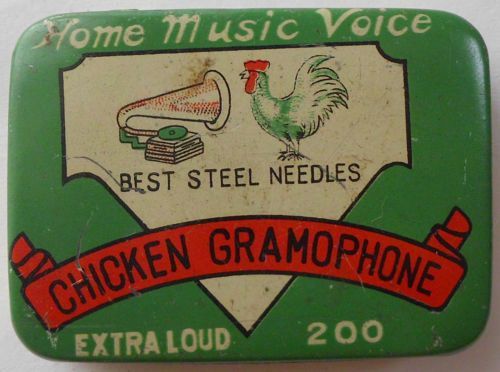Photo

1919 ; “Roses of Japan”
34 notes
·
View notes
Audio

Combining two of my recent obsessions, “Passing of the Circus Parade” sets Len Spencer as a circus barker announcing the acts as it travels through town. I think he does some of the impressions, too. If you listen carefully you can pick out which he does and doesn’t by listening for overlap with his announcements. I wonder who else was in on this session, they must have had a pretty good time. It’s a little noisy, but I think it’s worth it. Recorded ca. 1904.
5 notes
·
View notes
Photo

1901. Coon Song.
“I Can Stand for your Color but your Hair Won’t Do”
The man in the photograph is Sam Lucas;
9 notes
·
View notes
Photo

Luisa Tetrazzini, recording for the Gramophone Company in 1907. Fred Gaisberg recording (at center), Percy Pitt conducting. Image from “Illustrated London News”, Dec. 21 1907.
12 notes
·
View notes
Photo

1928 - Roaring Twenties Sheet Music
“The Girl Who Broke My Heart” by Al Dubin & Russell Robinson
120 notes
·
View notes
Photo


Using the tinfoil phonograph, from “The Telephone, the Microphone and the Phonograph” (1879) via Hathi Trust.
6 notes
·
View notes
Conversation
Me: *turns on ultra-loud phonograph*
Cat: *relaxed and laying on the ground*
Me: *turns on vacuum cleaner that is no where as loud as the phonograph*
Cat: OMG. PANIC!! PANIC!! I'M GONNA DIE!!! *runs out of room*
Me: ???????????????????????????????????
3 notes
·
View notes
Photo

1917 - “My Dream Girl” - WWI era sheet music
28 notes
·
View notes
Photo

Early iTunes – “Can Laugh, Talk, Sing” – Edison’s Phonograph
1880s
90 notes
·
View notes
Audio
| Le mouchoir rouge de Cholet (The Red Handkerchief of Cholet) | Composer: Théodore Botrel | First preformed in April 29, 1900 |
Gaumont made a phonoscène adaptation of this around 1907.
4 notes
·
View notes
Text
When you jump into opera at the age of 13 with only two vocal lessons

#it's 2 in the morning and i can't sleep please help#S.H. Dudley#does this count as nightblogging#it might as well#dead memes
2 notes
·
View notes
Photo

1910: “Call me up Some Rainy Afternoon” by Irving Berlin.
( this song was dusted off and brought up to date in the 1940s by Judy Garland and Bing Crosby)
19 notes
·
View notes
Video
youtube
This is neat-o; an 1910 Edison silent film advertising the Edison Business Phonograph. It’s particularly interesting considering the original intention Edison had for the phonograph was for this use as well as office dictation. Yet the phonograph’s use took a completely different route.
8 notes
·
View notes
Photo



Needle tins, 1920s/30s
334 notes
·
View notes
Photo

My Sugar-Coated Chocolate Boy [1919] sheet music. Published during the time Henry Burr temporarily went into the sheet music business.
1 note
·
View note
Audio
A Medley of Hal Roach Film Favorites 01
==============================================================
Introducing: “Look At Him Now”/”Beautiful Lady”/”Bells”
==============================================================
—”We thank you”…
14 notes
·
View notes
Photo

Parthenia Johnsing / words by Hugh Morton ; music by William Marion Cook.
For voice and piano. Caption title. First line of text: In me you see the product of the latest female fad. First line of chorus: Ev'ry one loves a Parthenia Johnsing. Color cover ill.: Woman in evening dress with little men in tuxedos dancing around her, photo of Abbie Mitchell. Music supplement of The New York American and Journal, Sunday, Dec. 21, 1902–Cover. A new Negro melody–Cover. As sung by Abbie Mitchell–Cover. New York American and Journal, 1902.
Courtesy of the E. Azalia Hackley Collection of African Americans in the Performing Arts, Detroit Public Library
25 notes
·
View notes